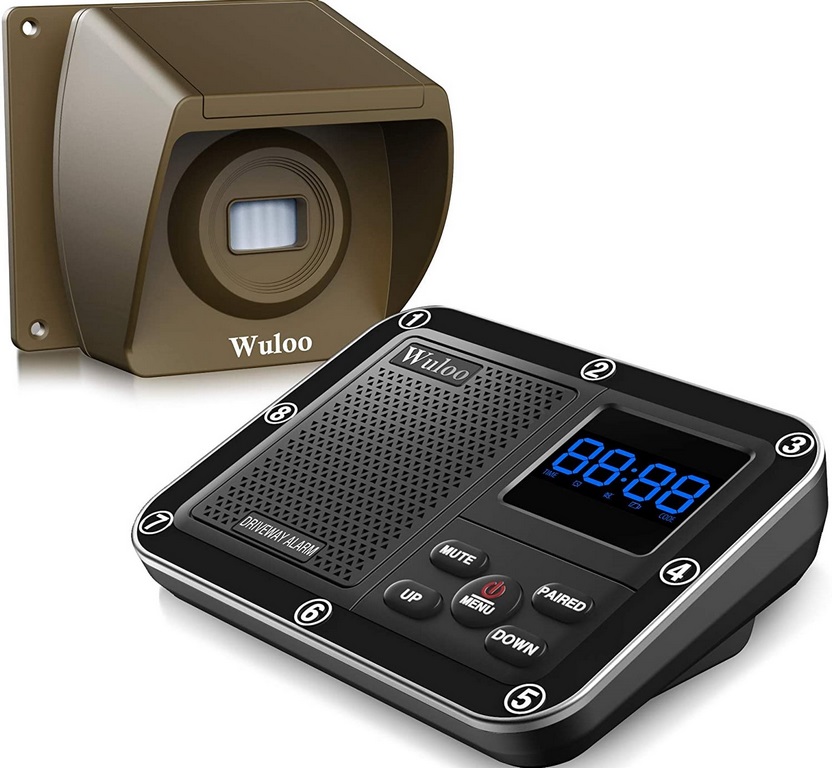Driveway alarms are designed to be installed in driveways. To find the right product for you, you will need to do some research on driveway alarms and wireless alarms.
When buying a driveway alarm, there are many factors to consider. It is essential to understand your needs and determine the essential features of your alarm system.
Although driveway alarms can be an excellent tool for security and protection, you should not let them get in the way of your personal requirements.
Wireless technology is now available for driveway alarm systems. This is in addition to wired options that were available in the past.
These alarms can detect cars, people, animals, and other objects using various technological methods.
Besides, they can detect infrared radiation emitted from moving bodies using infrared technology.
Some alarms use ultrasonic detection techniques, while others detect magnetic flux.
There are many alarm systems, but the main focus of all is security. Each one has its advantages and drawbacks.
You can choose based on the facts of your case rather than focusing on the pros and cons.

The Technology Behind the Motion Sensors
Three types of sensors are required for driveway alarms to work. To be effective, each sensor must be installed differently. These are:
Electromagnetic Sensors, Also Called Probe Sensors
Electromagnetic sensors can detect vehicles and only cars. The sensors won’t alert you to motion unless there is metal in the environment.
These sensors are located underground, near or under your driveway. They require an external transceiver to transmit the signal to your monitor in your home.
Without this, the sensor wouldn’t be able to send a reliable signal.
An Active Infrared Sensor, Or IR Sensor
These sensors are already familiar to garage door owners. IR sensors are motion sensors that have a direct line of sight between two sensors.
These sensors are active all the time, hence their name. The sensors trip whenever the line of sight between them is broken. A signal is sent to the monitor or base station.
These sensors emit infrared radiation between themselves and only rely on the break between the two components to activate.
Installation can be tricky as an IR sensor must pass straight between its twin. This will depend on your yard and driveway.
If you have narrow passages between your front and back, this system might not work.
You can use them on either side of your doors to notify you when someone enters or leaves your home.
A Passive Infrared Sensor or PIR Sensor
They work slightly differently. Everything emits some infrared radiation, including animals and humans.
This type of radiation is commonly known as heat. These sensors can sense temperature variations and are calibrated to detect them.
The PIR sensors are available in pairs. The alarm sounds when something passes between the sensors and causes temperature differences.
These sensors do not depend on any nearby driveway sensors and can operate independently.
They can be placed almost anywhere. However, they will only activate when they detect temperature fluctuations.
They can catch criminals but will also capture pets and children, depending on their sensitivity.
Read Also:
Important Factors to Consider When Choosing a Driveway Security Alarm System
Wired Vs. Wireless.
There are two types of driveway alarms. The older models are wired, while the latest ones are wireless.
Each type has its pros and cons. While wired systems are more reliable and require less maintenance, they tend to be more expensive than wireless ones.
A wireless alarm is much easier to set up. You will need to determine which factors are most important to you to make the best decision.
Range
The most important thing to consider when choosing a driveway alarm system is its effective range. It must be able to cover your entire driveway.
A sensor in your home is necessary for a wireless alarm system. It is essential to determine how far your sensor will be from the receiver.
The range of your wireless signal should be at least 100ft more than the intended use.
If you live in a complex area or will be passing through buildings, increase the range by at least 500 feet.
You will need wiring if you decide to install a wired alarm system. You can increase the protection by making sure the wiring is sufficient for your entire driveway.
Alert Type of Driveway
There are many types of alerts available at the moment. It is crucial to choose the right alert for you.
Alert systems that can be sent via text or phone calls are great for those who sleep well.
You might find louder alerts that wake you up from your sleep more helpful if you are a heavy sleeper.
For people with hearing impairments, systems that include visual and vibrating alerts are the best.
Type of Sensor
There are many driveway motion sensors, but most, or 85 percent of them, use a passive infrared sensor (PIR).
PIR sensors offer a broad field of vision, are highly accurate and cost-effective, and detect all types of traffic.
These sensors are great for pairing multiple sensors with your receiver.
Every time anything significant wanders through your yard, you’ll be notified. This level of detection can be annoying.









